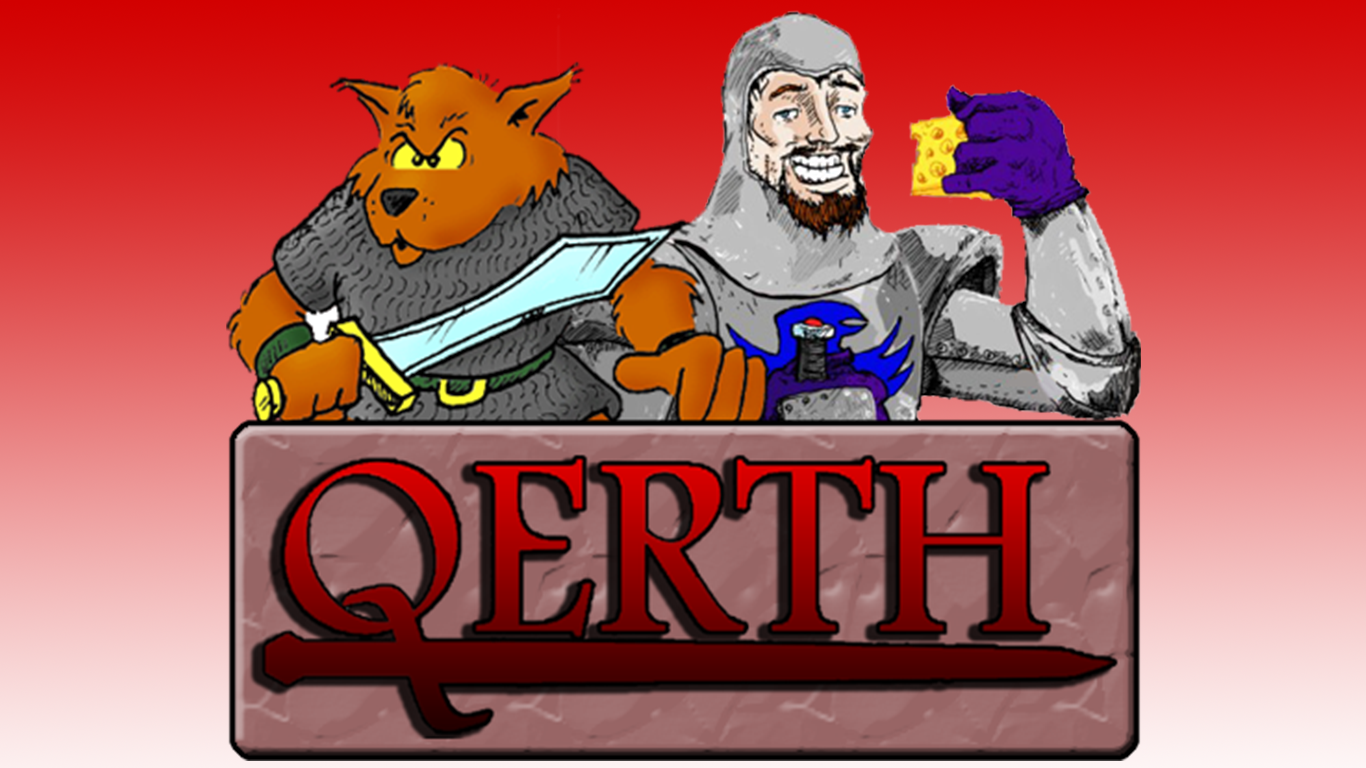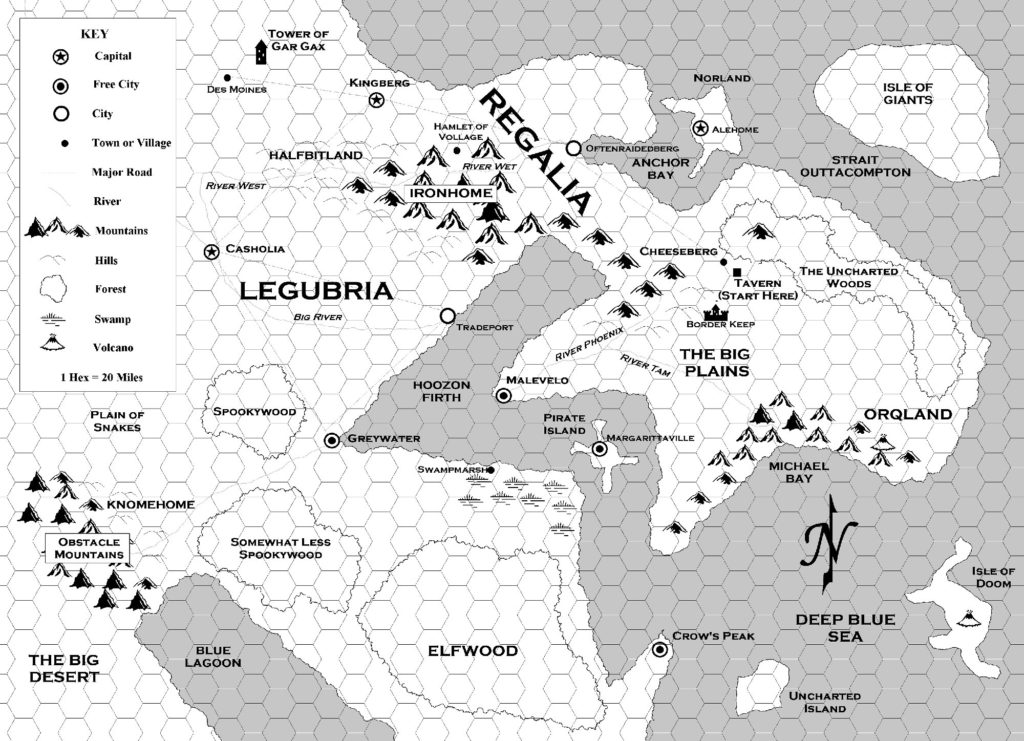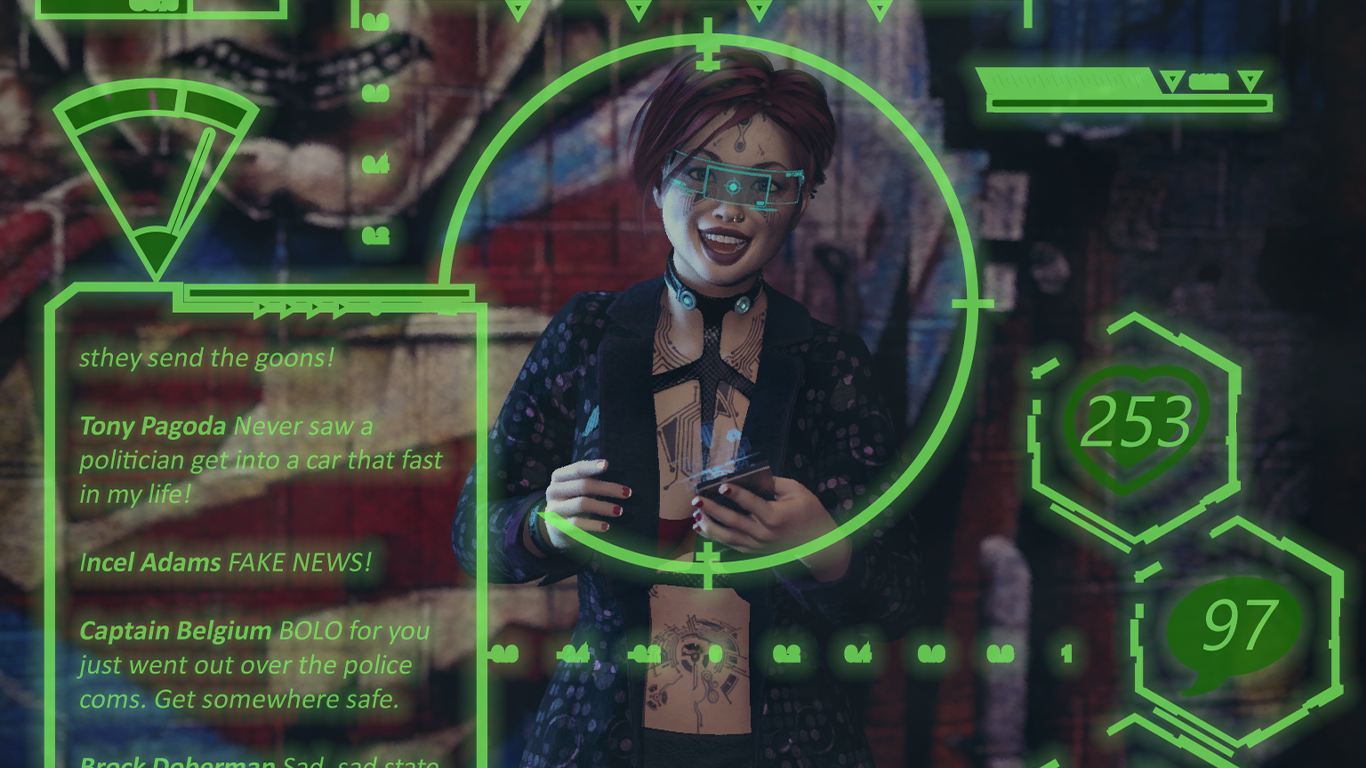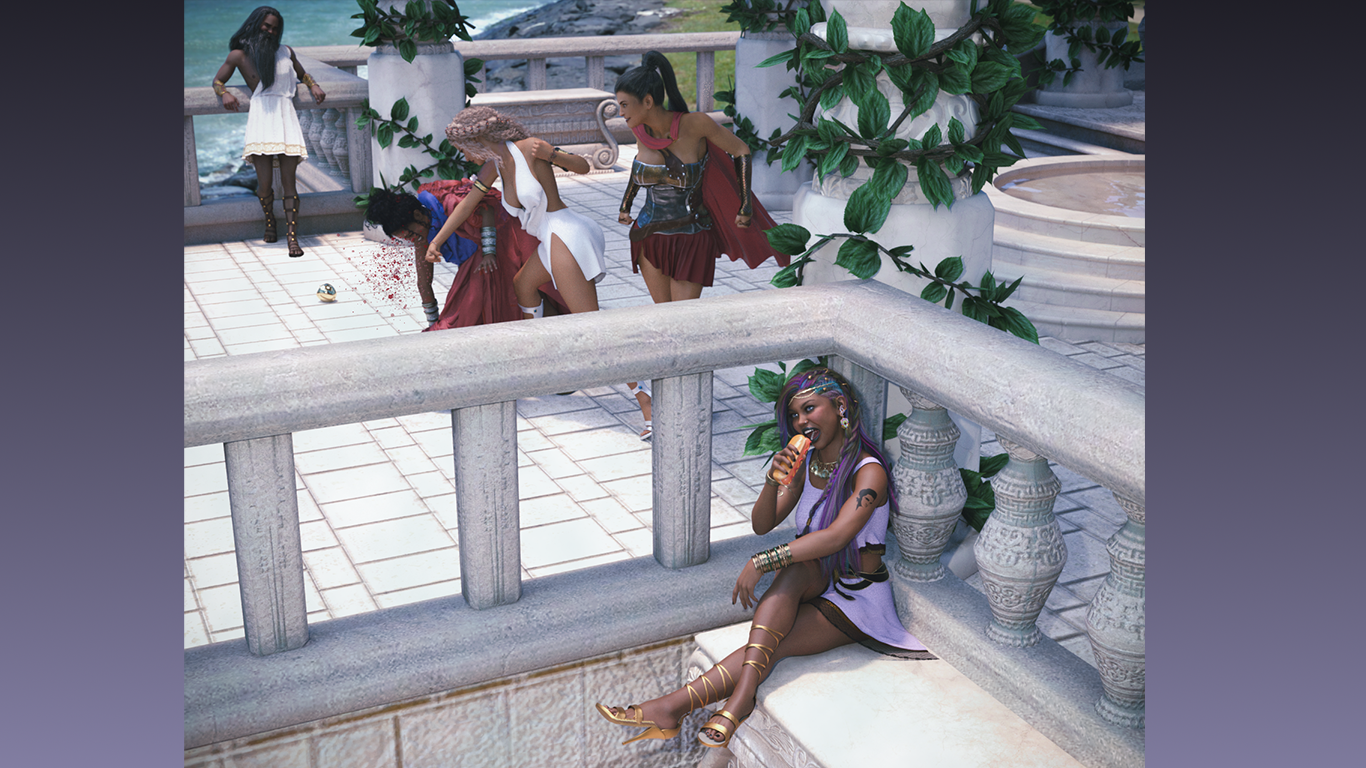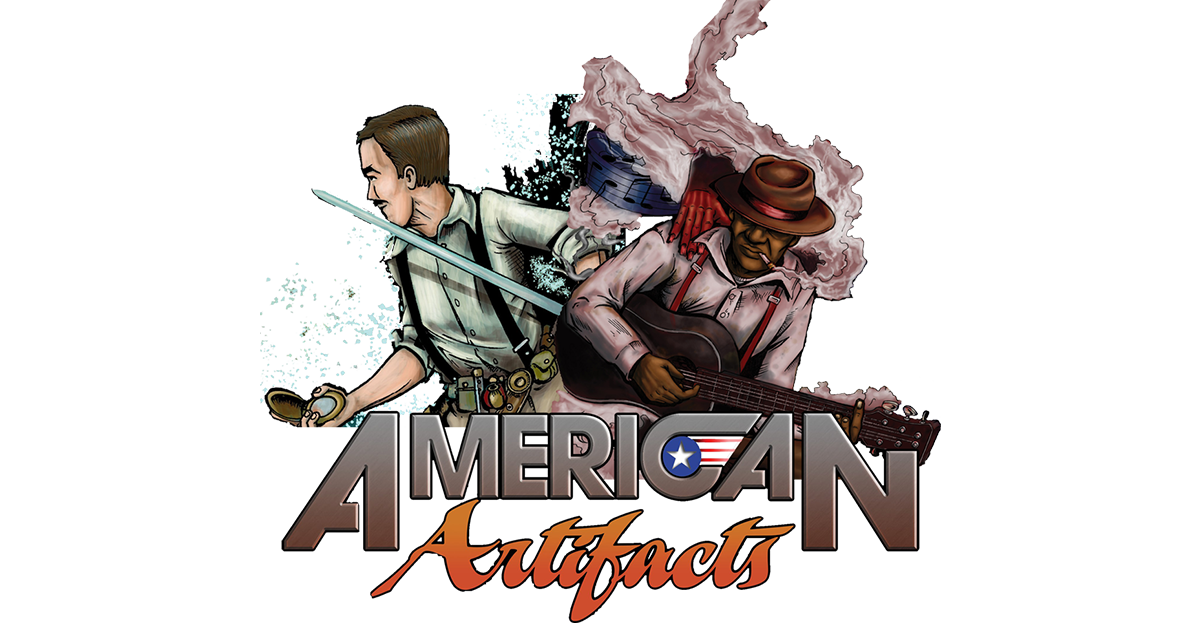We may earn money or products from the companies mentioned in this post.
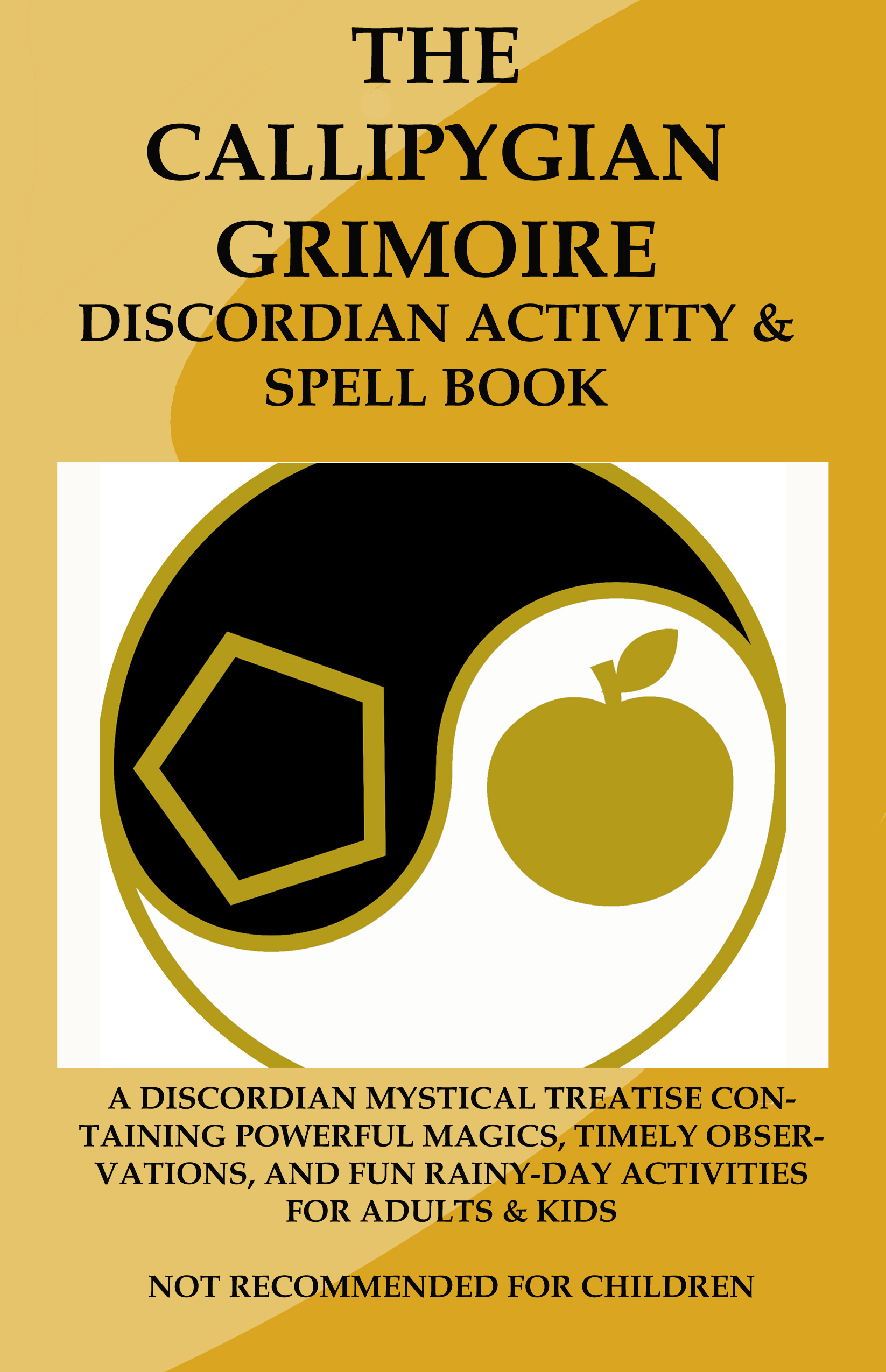 Except for last week’s blog about running con games, I’ve been doing a lot of shameless self-promotion here recently. I’m going to continue the trend again this week, but at least this time I’m using it as a sloppy segue into the main topic of the column. But first, the whoring: Brainfart Press (which is basically what I call myself when I publish incredibly unmarketable books, like Obscure Early Bluesmen (Who Never Existed)) has just released its second publication, The Callypigian Grimoire: A Discordian Activity & Spell Book. It’s completely full of stupid shit. You can download it for free from the Brainfart Press page or order a print copy through CreateSpace or Amazon. I recommend a print copy, but since I actually make a buck or two off those, the recommendation is based on an ulterior motive.
Except for last week’s blog about running con games, I’ve been doing a lot of shameless self-promotion here recently. I’m going to continue the trend again this week, but at least this time I’m using it as a sloppy segue into the main topic of the column. But first, the whoring: Brainfart Press (which is basically what I call myself when I publish incredibly unmarketable books, like Obscure Early Bluesmen (Who Never Existed)) has just released its second publication, The Callypigian Grimoire: A Discordian Activity & Spell Book. It’s completely full of stupid shit. You can download it for free from the Brainfart Press page or order a print copy through CreateSpace or Amazon. I recommend a print copy, but since I actually make a buck or two off those, the recommendation is based on an ulterior motive.
And speaking of Discordianism, some of you may know that the entire world of Qerth is based on the idea that Eris want some good cheese! See, I told you it was a sloppy segue. As you can probably guess from the cover, Qerth is a D&D parody. It’s not one of our best-known books, but I do get semi-regular questions about it through the web site, most of them asking when we’re going to come out with the next set of rules (like the original D&D rules, the first Qerth book only gives rules for the first few levels (or Ranks, as we call them)). My answer usually sounds like an evangelical Christian’s answer when someone asks them when Jesus is coming back. Something along the lines of “It’s going to happen, but nobody can know when.” The real answer is complicated and requires understanding the history of Qerth, which is what I’m going to focus on this week. The background involves some behind the scenes details about how things work at an incredibly small game company and ties into the changes in the game publishing industry over the last decade or so, so hopefully even non-Qerth fans will find some of this interesting. Next week I’ll get into the current status of future Qerth products.
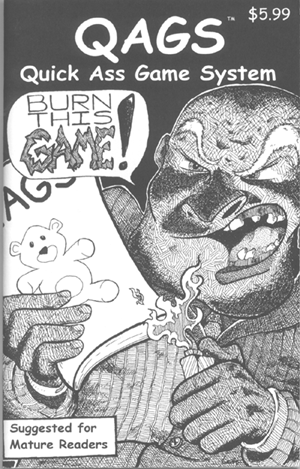
Qerth was actually the very first QAGS supplement that Leighton and I started. In fact, I think we wrote the very first pieces of Qerth (the introduction and some of the Job tables) when we were still working on QAGS. We kind of lost momentum and started working on other things, but returned to it periodically when inspiration struck. It was pretty low priority though, for a couple of reasons. There was a concern about whether it was “marketable,” although since our distribution network at that point consisted of the store where I worked, our website (the URL of which at the time was “www..mindspring.com/~sejohnson; this was the late 90s and domain names were still kind of pricey), and the occasional con, marketability was kind of a moot point. The bigger problem was that at that point we were doing digest-sized, staple-bound books printed by a company that was one step up from Kinko’s (you can download most of those old books in PDF format for free on our website if you want to see our incredibly humble beginnings for yourself), and there was just no way a book the size of Qerth was going to work in that format.
Eventually, we graduated to producing grown-up books, which got rid of the format limitations. Unfortunately, it also made marketability an actual concern. This was still back in the days of traditional printing, so printing a book meant printing at least 2,000 copies, so we had to worry about whether or not we could sell the things. Since we were selling our books through traditional distribution channels, that was at least theoretically possible, but since we were printing each book with the proceeds from the previous book, we couldn’t take the risk on something as iffy as Qerth. And yes, I’m aware of the irony of calling Qerth “iffy” when most of our profits were from a 64-page digest-sized black and white rules system written mostly as a joke. I’m not completely disconnected from reality. When Hackmaster came out, we discovered that a D&D parody was a marketable idea (at least if you had an incredibly popular comic behind it), but the niche was now filled and we realized it would be hard to market Qerth as anything but a Hackmaster clone. We still worked on Qerth occasionally, and even ran it at conventions (one of my favorite con games ever was a high level Qerth game at DragonCon where the players got attacked by a living mountain and then had their henchmen fight the dragon off-screen while they raided the treasure hoard), but its publication seemed farther away than ever.
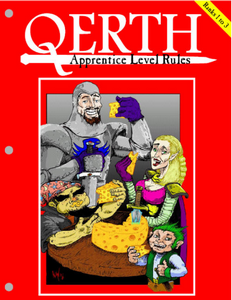
When Print on Demand came along, we were freed from spectre of huge printing costs, but traditional distributors (especially the 800 pound gorilla) had something called “returnability,” which meant they still ordered huge quantities (which we had to pay to print), then returned whatever didn’t sell after a year or so. Since even our “marketable” products were very niche, we eventually realized that traditional distribution wasn’t for us. By the time we’d printed all the books that the distributors ordered, paid them back for the books that didn’t sell, and paid for shipping both ways, it added up to more than we made from the books that did sell. This called for some serious re-thinking of our business plan.
There were really two reasonable options. One was to just call it quits. The other was to produce stuff that would actually sell (like maybe getting in on the d20 glut that the OGL inspired) but that we had absolutely no interest in creating. We decided to go with the third option. Since we could now literally print a single copy of a book if we wanted to, we decided that we’d write what we want and just print what we need to sell on our website (which by this time had a real URL), any stores that would deal with us personally outside of the distribution channel, and at conventions. It meant resigning ourselves to working day jobs and doing games as a hobby, but it also meant that we wouldn’t be hemorrhaging money to print books for the distributors to store for a year and then ship back.
Thanks to the rise of the PDF game market, this plan eventually kind of worked out for us, but at the time we were just happy that we could keep making games for ourselves and that we’d found a few people who also enjoyed the games we made. It was oddly freeing, because it meant we could do anything we wanted or, as we sometimes put it we could “embrace the stupid.” There was nothing stopping us doing Qerth, so we started working on it.
Even though at this point Qerth was basically being written for our personal gratification, we wanted to differentiate it from Hackmaster. By that point, we’d learned enough about Hackmaster to realize there was a pretty significant difference. Hackmaster is a parody of D&D, just like “White & Nerdy” is a parody of “Ridin’ Dirty.” It’s basically the same thing as old D&D, just with funny “lyrics.” Even at that point, Qerth was a satire of D&D; to continue the Weird Al analogy, the relationship is closer to the one between “Everything You Know Is Wrong” and songs of They Might Be Giants. The satire of Qerth was a nastier than Weird Al’s satire, but it kind of became our hook for writing the rest of the game.
Based on the satire hook, we decided that we wanted to make a game where all the dumb shit in D&D actually made sense in the context of the world. We’d already done some of that with the idea that the Knomes were secretly setting up the dungeons as training grounds to fulfill the “And Lo, There Shall Come A Cheese Maker” prophesy–the inclusion of Cheese Makers was to fulfill Leighton’s long-time dream, based on a single non-weapon proficiency in the Complete Humanoid Handbook, of running a campaign that prominently featured cheese making–but hadn’t really figured out the end game. I think it was when we were trying to come up with a context for the weird-ass D&D style magic system that we first introduced Eris, and that’s when everything clicked. Qerth was a fake world built on the Golden Apple (you can actually see part of the word “Kallisti” on the map if you look closely) because Eris wanted some cheese. Which brings us back to where we started and gives me a chance to once again remind you to buy my stupid Discordian magic and puzzle book.
Next week: Exciting Qerth News!

